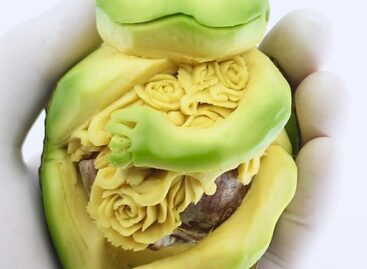Italian cuisine 2025
The innovative power of Italian cuisine lies in the fact that it is never static, but rather a reflection of a way of life. As for the modernisation of Italian cuisine, it doesn’t stem from a rejection of traditions, but from its indirect renewal.
This article is available for reading in Trade magazin 2025/8-9.
According to Massimo Bottura, owner of Osteria Francescana (voted the world’s best restaurant twice), the deconstruction of a dish isn’t about taking it apart, but about reinterpreting it.
For the world Italian cuisine is a well-known formula: pizza, pasta, tiramisu, espresso. These icons are part of Italian gastronomy, but they are symbols rather than complete representatives. What the world considers Italian is often an “Americanised”, simplified, export-friendly version: An Italian chef or grandmother doesn’t defend the letter of the recipe, but its cultural content.
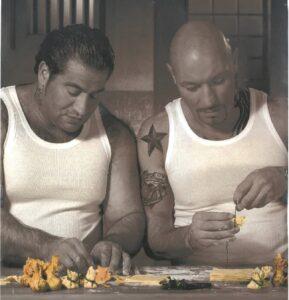
The innovations of Italian cuisine lie in a shift of perspective
The world and them
The so-called Italian gastro chains evoke Italian cuisine using spectacular, even theatrical means – it has a nonna atmosphere (red and white checkered tablecloths, old family recipes, grandmotherly wallpaper): the dining experience is intense, entertaining, almost cinematic. However, the franchise format is easy to export, but it inevitably standardises and simplifies the food. What customers get is an “Italian experience package”. The food may be delicious, but it rarely carries stories linked to the terroir.
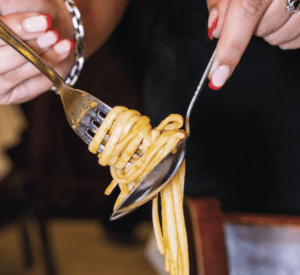
Macro trends
Lots of Italian restaurants and food delivery companies now also offer the vegan versions of classic dishes, made without eggs and cheese. Gastronomically this is no longer the same product, but it can remain Italian in terms of attitude. Many of the well-known “modern” Italian chefs such as Alessandro Bergamo and Martina Caruso are increasingly accepting plant-based alternatives, as long as the basic experience remains the same. Italian gastronomy is caught between two forces: slow food, which is based on roots and community, and the fast, global, cheap alternatives offered by the industrial food chain. The essence of Italian cuisine isn’t in fine dining restaurants, but in the culinary culture of market squares, villages and streets. Street food isn’t a new trend in Italy, but an ancient, local and mobile forms of eating. As for the future of Italian gastronomy, it may well be based on street food type elements: sustainability, simplicity and portability.
Italy, you are so sweet!
When it comes to eating dessert, in Italy it is never just an afterthought. Gelato and classic sweets follow the same logic as contemporary cuisine: a conscious reinterpretation of tradition. In haute cuisine gelato is no longer a supporting actor. As a “gourmet element” it blends into the rhythm of the menu, sometimes with salty or spicy accompaniments: vanilla softened with olive oil, chocolate with a hint of citrus, and the crunch of roasted seeds alongside a silky cream. What delivers “Italianness” is still the terroir and transparency – pistachios from Bronte, hazelnuts from Piedmont and chocolate from pure sources. Meanwhile, the demand for “better-for-me” products is growing quietly but steadily: dairy-free, low-sugar or plant-based alternatives are increasingly popular.
Aperitivo as a ritual

Gábor Árok
head of premium
spirits division
Coca-Cola HBC
Magyarország
Since 1863 the Martini brand has embodied the Italian aperitivo tradition – that special time at the end of the day, when we pause for a moment to enjoy the tranquility and the company of others over a light, refreshing drink. Aperitivo is one of the most beloved rituals of Italian culture and it is being discovered by more and more people around the world. It isn’t only about the drink itself, but also about slowing down and unwinding.
Simple, but high quality

Tamás Sárközi
head of coffee
division
Coca-Cola HBC
At Caffè Vergnano we believe that the Italian way of life lies is associated with simple, but high quality food and drinks. We use selected, slowly ground arabica and robusta beans and traditional roasting methods. Our classic Espresso, a milder Arabica blend and Caffè Vergnano capsule coffees all represent the values of “Made in Italy”. The secret of Italian coffee culture is pure flavours, knowledge passed down through generations and the joy of shared moments.
Simple and natural

Ferenc Szlávik
owner-managing
director
Brodo Hungary
Italians use the STAR Il Mio Brodo stock bases – which we distribute in Hungary and Romania – for soups (tortellini in brodo, minestrone), ragouts, risottos, sauces, stews and baking. The slogan “Just like home cooking” is an important message on the packaging, which is taken very seriously by both the manufacturer and consumers. High quality, simplicity and appealing naturalness characterise the five-flavour product line.
The heritage of Tuscany

Mária Péntek
owner
Toscaneria
The La Molina artisan chocolates and Pure Stagioni jams available at Toscaneria represent the rich cultural and natural heritage of Tuscany. We are committed to products that are made from high quality, natural ingredients from traditional recipes and in an artisanal environment, combined with artistic sophistication and thoughtful design.
For us “Italian quality” is the harmonious combination of naturalness, respect for tradition and design – values that define the principles of our product selection and the philosophy of the brands we represent.
Passion and a way of life

Ibolya Szabó
head of corporate affairs
Dreher Sörgyárak
The secret of Italian cuisine lies in the harmony between quality and passion: few but excellent ingredients, light elegance and a harmony of flavours – together, these create the feeling of life that is also reflected in Peroni Nastro Azzurro products. For the brand Italian gastronomy isn’t just about wonderful taste, but a way of life, with every sip representing the passion-filled Italian style.

Sponsored illustration
Everything pizza

Ákos Bősze
HoReCa
business development
executive
METRO
Since we constantly monitor domestic and international trends, METRO believes that pizza – with nearly 18 million pieces made every day around the world – is the most important element of Italian cuisine. This is why we have developed a product range in which beginners, advanced cooks and professionals alike find what they need to make Roman, Neapolitan, pan-fried or canotto pizza. Our own brand (METRO CHEF) original Italian ingredients, tested by the best Italian chefs, deliver an excellent solution.
Lifestyle and community

Petra Rőczei
marketing manager
IN-FOOD 2000
In-food 2000’s product portfolio includes Rio Mare and Cirio canned products, Monini and Ponti oils and vinegars, Café Borbone beverages and Rummo pastas. The popularity of Italian cuisine has four pillars: health, quality, simplicity and culture. Most dishes are made from just a few ingredients, but these ingredients are always of the highest quality. Plus Italian cuisine isn’t just about food, but also about lifestyle, community and family. Our goal is to convey this passion and the “dolce vita” lifestyle to our customers.
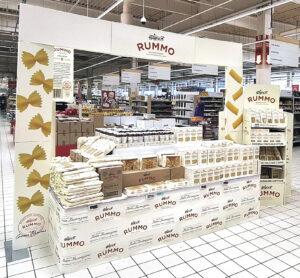
Sponsored illustration
Italian gastronomic heritage

Giacomo
Pedranzini
managing director
KOMETA
For KOMETA the Italian gastronomic heritage serves as a professional compass and a source of inspiration. The secret of Italian cuisine lies in its purity, simplicity, respect for ingredients and harmony. Our product selection includes bresaola, prosciutto crudo and various Italian salamis. KOMETA’s motto is Buona vita!, meaning good life, because I am convinced that good food forms the basis of a good life.
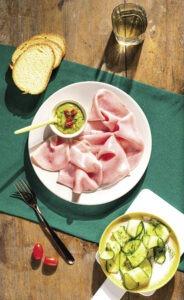
Sponsored illustration
What have the Romans ever done for us?
“Italian heritage, Hungarian pride – The Italian roots of Hungarian salami production” is a temporary exhibition running until 2 November that explores the true origins of one of the leading sectors of the Hungarian food industry. Italian families who settled in Hungary began salami production in our country.
Tomato professionalism
The secret of Italian cuisine lies in high quality ingredients and passionate cooking – values that are also reflected in Mutti products: in the careful selection of ingredients, such as 100% Italian tomatoes grown using sustainable methods, and in the consistent and reliable taste. Tomato is the cornerstones of Italian cuisine. Our Mutti Passata, Polpa, Pelati and Tomato Concentrate are all essential cooking ingredients of classic Italian cuisine.
Related news
(HU) METRO Gasztro Fesztivál a SIRHA Budapesten – Élmény, inspiráció és valódi megoldások a HoReCa-szakmának
🎧 Hallgasd a cikket: Lejátszás Szünet Folytatás Leállítás Nyelv: Auto…
Read more >Kometa’s new giant investment in Kaposvár will create four hundred new jobs
🎧 Hallgasd a cikket: Lejátszás Szünet Folytatás Leállítás Nyelv: Auto…
Read more >Related news
Hello, who ordered the hamburger?
🎧 Hallgasd a cikket: Lejátszás Szünet Folytatás Leállítás Nyelv: Auto…
Read more >(HU) Faragta, faragta, amíg faraghatta… – A nap képe
🎧 Hallgasd a cikket: Lejátszás Szünet Folytatás Leállítás Nyelv: Auto…
Read more >(HU) Kétmilliós nézettségű videó a borászat FB-oldalán – A nap videója
🎧 Hallgasd a cikket: Lejátszás Szünet Folytatás Leállítás Nyelv: Auto…
Read more >






